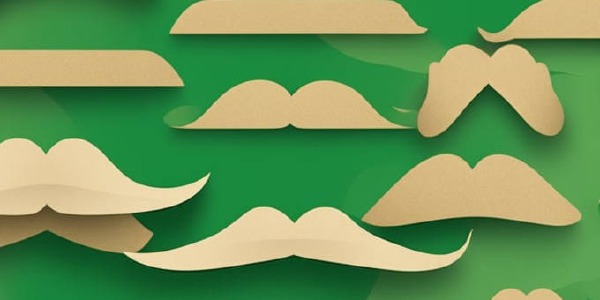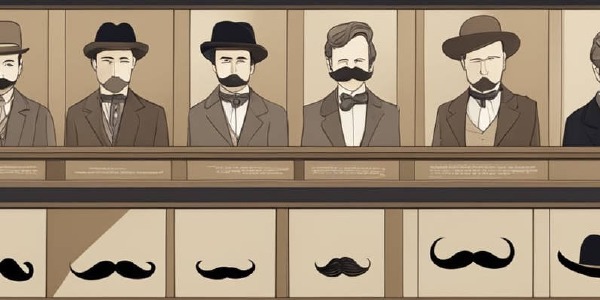The Tale of Two Taches: Mustache vs. Moustache
Moustache or mustache? Both spellings refer to the same facial hair growing above the upper lip. However, which one is correct? The answer is: It depends on where you are! While mustache is the preferred spelling in the United States, moustache is the preferred spelling in other English-speaking countries, including the United Kingdom, Canada, and Australia.
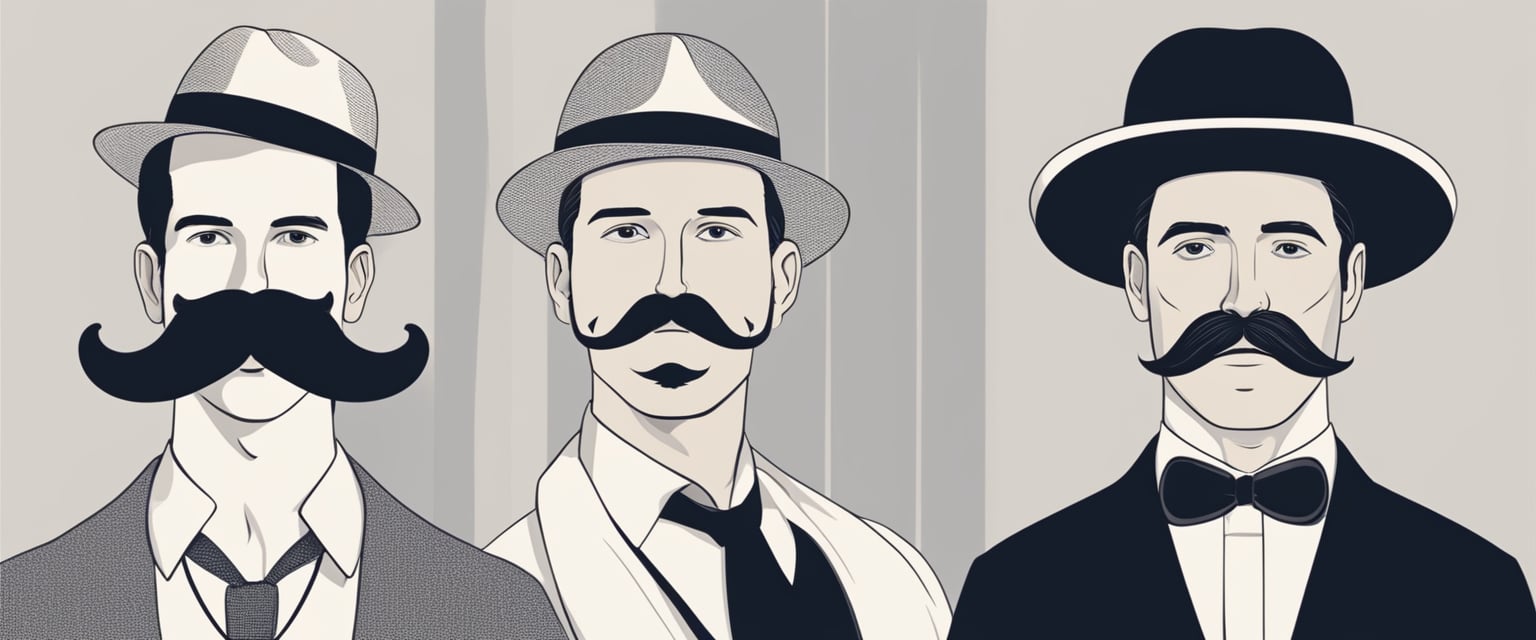
The difference in spelling is not just a matter of regional preference. The word has an interesting etymology that sheds light on why it is spelled differently. The word moustache comes from the French word moustache, which in turn comes from the Italian word mostaccio. Mustache, on the other hand, is a simplified spelling of moustache that became popular in the United States in the 19th century.
Key Takeaways
- The spelling of moustache and mustache depends on the country or region.
- Moustache has French and Italian roots while mustache is a simplified spelling that gained popularity in the United States.
- Both spellings refer to the same facial hair growing above the upper lip.
Etymology
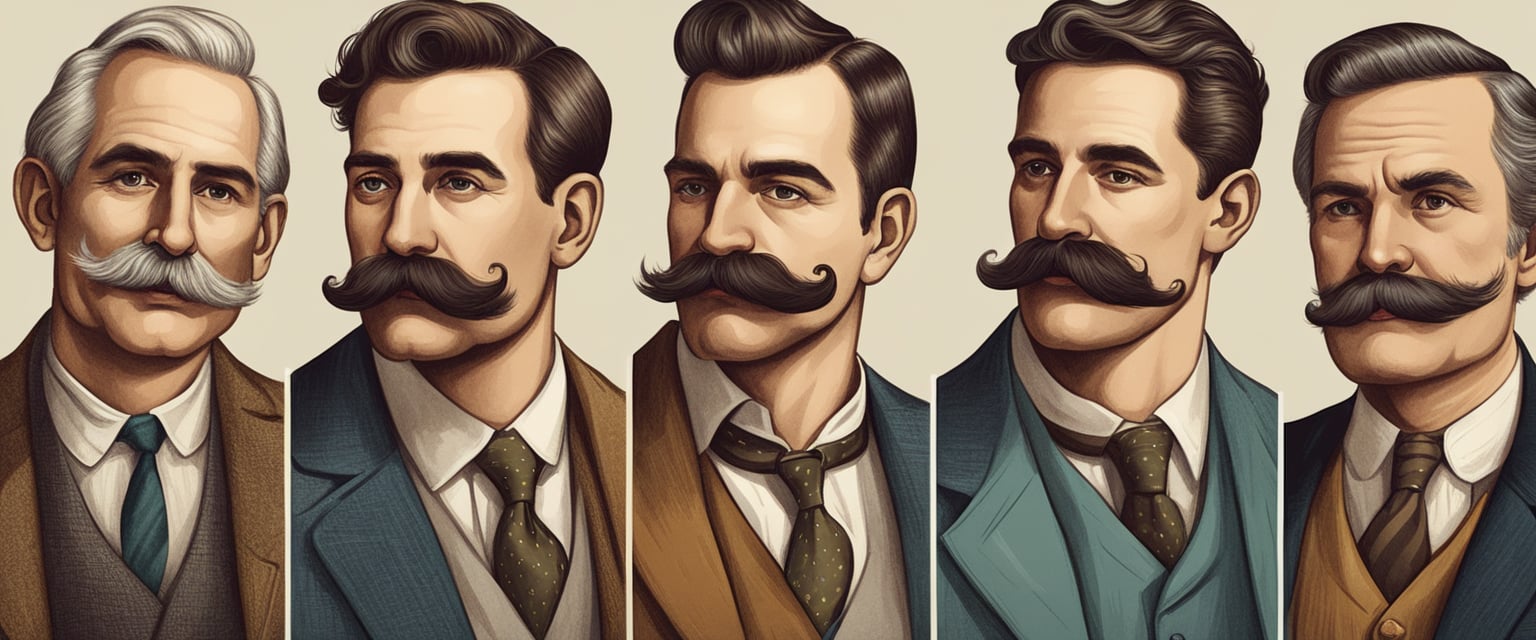
The word "moustache" and "mustache" are two different spellings of the same word, which refers to the facial hair that grows on the upper lip of men. The word has been in use since the 16th century, and its origin can be traced back to the Greek word "mystax" or “moustaki”, which means "upper lip."
According to Merriam-Webster, the French-derived spelling "mustaches" has been in use for a long time and has been in competition with the Italian- and Spanish-derived "mustachios." The battle between plural and singular usage was not the only one being waged in the language over this word.
The word "moustache" is the preferred spelling in all the main varieties of English from outside the United States, while "mustache" is the U.S. spelling of the word. The spelling "moustache" is the more common spelling in British English.
The word "mustachio," which resembles the Italian word for facial hair but is spelled differently, was originally a variant of "mustache", but it has long been used to refer to an elaborate or flamboyant mustache.
In conclusion, the difference between "moustache" and "mustache" is simply a matter of spelling, with the former being more common outside the United States and the latter being more common in the United States.
Spelling Variations
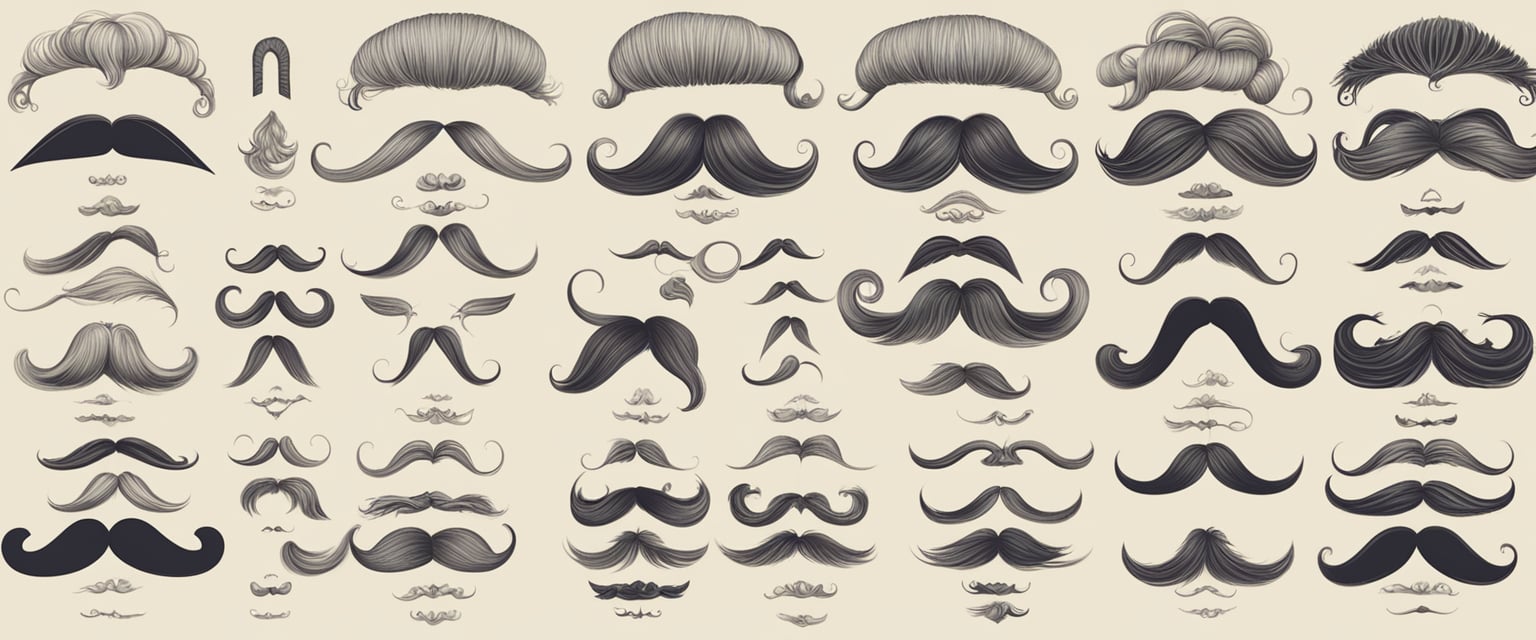
Moustache and mustache are two different spellings of the same word. The spelling variation depends on the English language variant used. British English uses the spelling "moustache," while American English uses "mustache."
British English
In British English, "moustache" is the correct spelling. The word is derived from the French word "moustache," which means "upper lip hair." British English retains the original French spelling of the word.
American English
In American English, "mustache" is the correct spelling. The word is spelled phonetically to reflect the way it is pronounced. American English has a tendency to simplify spellings of words, and "mustache" is a good example of this trend.
In conclusion, the spelling variation between moustache and mustache is a matter of regional variation. British English uses the spelling "moustache," while American English uses "mustache."
Styles and Trends
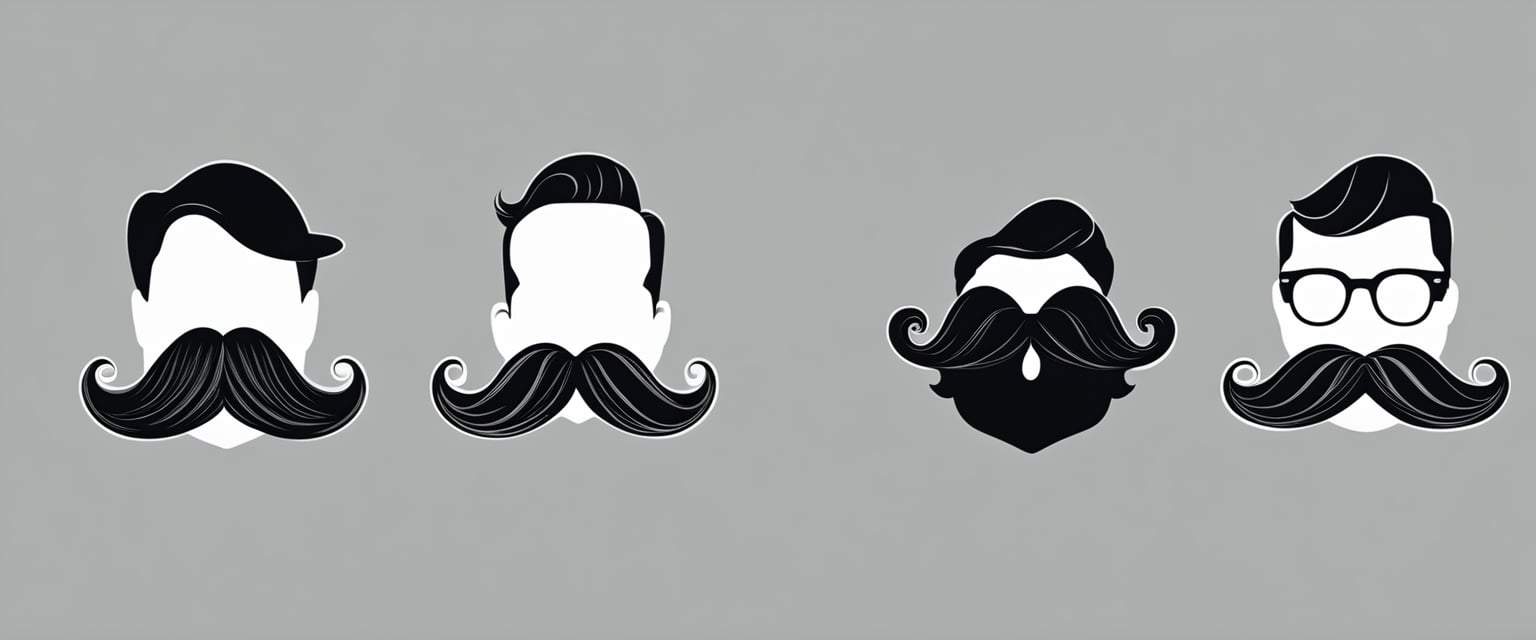
Movember
Movember is an annual event that takes place in November, where men grow mustaches to raise awareness for men's health issues. During this month, it is common to see a variety of mustache styles, ranging from the classic handlebar to the more modern pencil mustache. Movember has become a popular trend in recent years, with many men participating and sharing their progress on social media.
Waxed Moustache
Another popular trend in the world of mustaches is the waxed moustache. This style involves using wax to shape and hold the mustache in place. It can be worn in a variety of ways, from a simple and understated look to a more elaborate and dramatic style. The waxed moustache has been around for centuries and has been seen on many famous figures throughout history.
In terms of style, the mustache has gone through many changes over the years. From the thick and bushy styles of the 1970s to the more refined and understated looks of today, the mustache has always been a popular choice for men looking to add some personality to their appearance.
Whether you prefer the classic handlebar or the more modern pencil mustache, there is a style out there for everyone. And with the popularity of events like Movember and the continued use of waxed mustaches, it's clear that the mustache is here to stay as a timeless trend.
Cultural Significance
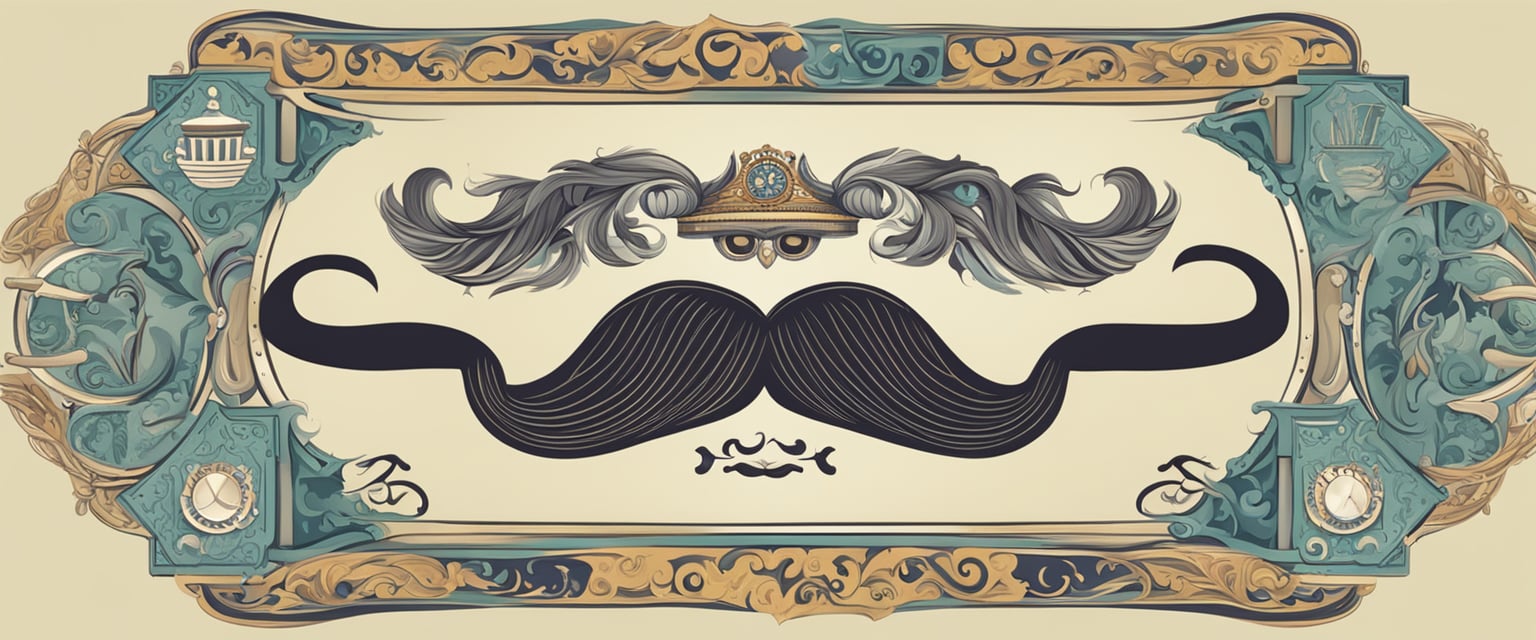
The spelling of moustache and mustache has cultural significance and varies based on the country and language. Here are a few examples:
United Kingdom
In the United Kingdom, the spelling of moustache is preferred over mustache. The bushy moustache is a symbol of power and masculinity and has been associated with British culture for centuries.
United States
In the United States, the spelling of mustache is more commonly used. The term mustached is also used to describe a person with a mustache. Mustaches have been popular in American culture for many decades, and are often associated with law enforcement officers, especially during the 1970s.
French Influence
The French language has influenced the spelling of moustache. In French, the word for mustache is "moustache," which is spelled the same way as in British English. French culture has also had a significant impact on the popularity of the mustache, especially during the 19th and early 20th centuries.
Italian Influence
Italian culture has also had an impact on the spelling of mustache. The Italian word for mustache is "mustachio," which is spelled differently from the English spelling. In the United Kingdom, the plural form "mustachios" is commonly used.
In conclusion, the spelling of moustache and mustache varies based on cultural and linguistic influences. Both spellings are correct and used interchangeably in different regions of the world.
Grooming and Care
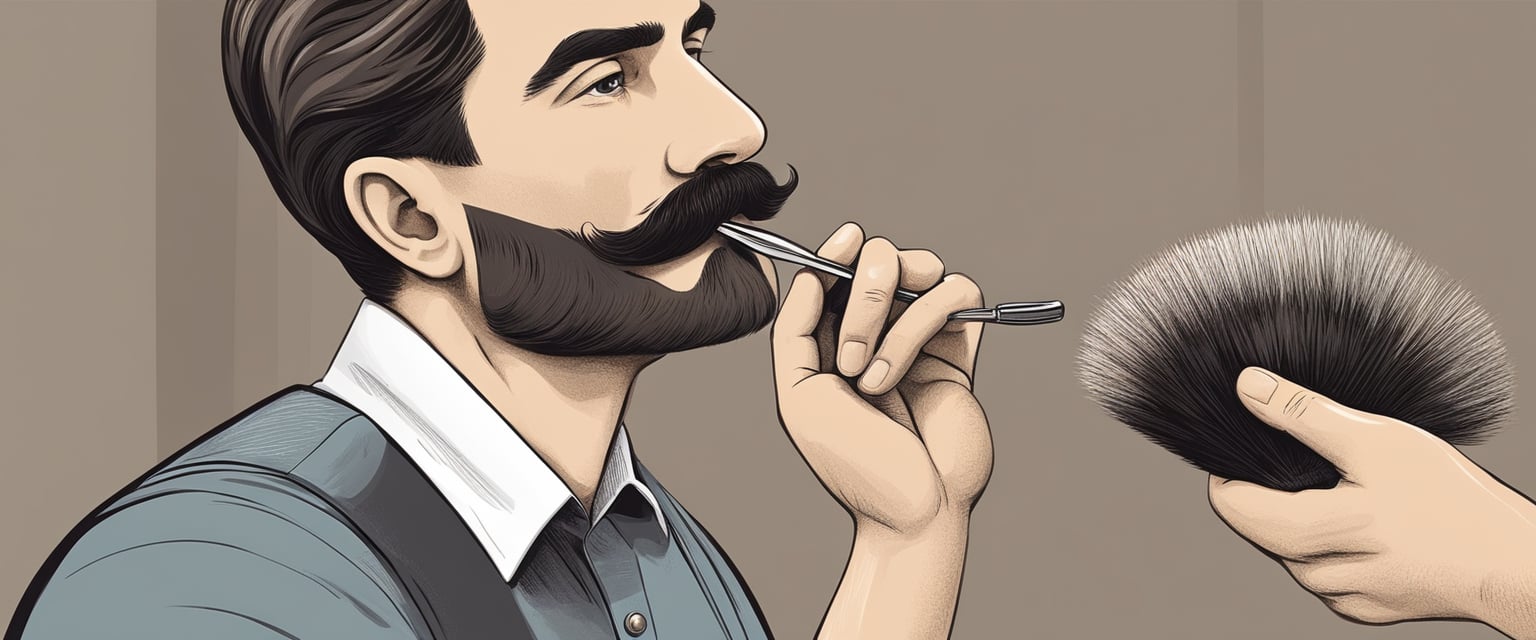
Growing a Moustache
Growing a mustache requires patience and dedication. It is important to note that not all men can grow a full mustache, and some may experience patchy growth. To encourage growth, one should maintain a healthy diet and avoid stress.
Trimming and Styling
Once the mustache has grown to the desired length, it is important to trim and style it regularly. Using a small pair of scissors or a mustache trimmer, one can trim the bristles to keep them neat and tidy. A comb can also be used to help style the mustache in the desired direction.
Coloring
For those with a black mustache who want to maintain its color or change it to a different shade, there are various mustache coloring products available. It is important to choose a product that is specifically designed for facial hair and to follow the instructions carefully.
Overall, grooming and care of facial hair, including the beard, sideburns, chin, and upper lip, is important to maintain a well-groomed appearance. With proper care, a mustache can be a stylish addition to any man's look.
Accessories and Related Terms
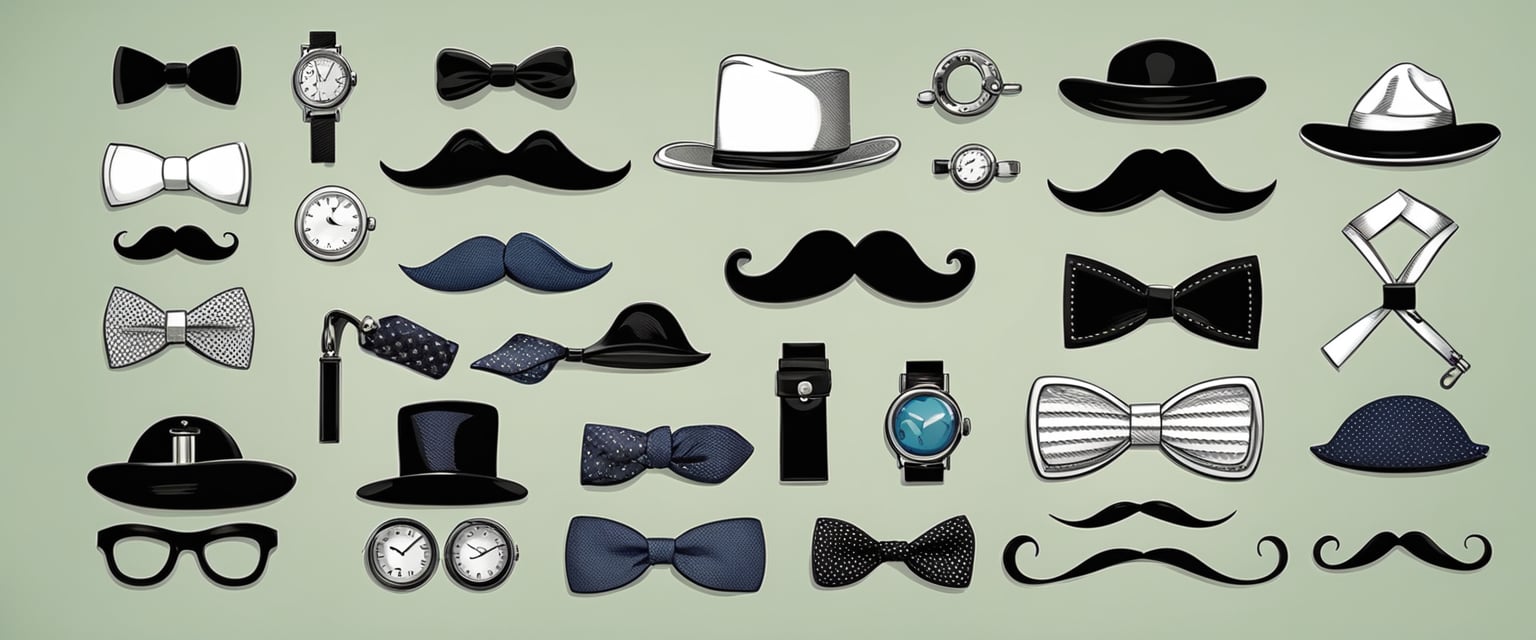
When it comes to facial hair, accessories and related terms can be important to take into consideration. Here are a few subsections to explore:
Hat and Moustache
A moustache can be paired with a hat to create a certain look or style. For example, a handlebar moustache paired with a fedora can give off a vintage, 1920s vibe. The combination of a moustache and a hat can also be seen in popular culture, such as in the character of Detective Hercule Poirot, who is known for his distinctive waxed moustache and bowler hat.
Whiskers and Sideburns
While a moustache refers specifically to the hair above the upper lip, other facial hair can also be considered related terms. Whiskers, for example, refer to any facial hair that grows on the cheeks or chin. Sideburns, on the other hand, are the patches of hair that grow in front of the ears and extend down towards the jawline. These terms can be used interchangeably with moustache, depending on the style of facial hair in question.
Cat with a Moustache
A cat with a moustache is a popular internet meme that involves photoshopping a moustache onto a cat's face. The meme is often accompanied by humorous captions that play off the cat's new facial hair. While cats do not naturally grow moustaches, the meme has become a cultural phenomenon and a way to add a touch of whimsy to the internet.
In conclusion, accessories and related terms can be an important aspect to consider when it comes to facial hair. From hats to sideburns to internet memes, there are many ways to incorporate moustaches and other facial hair into one's personal style.
Sources
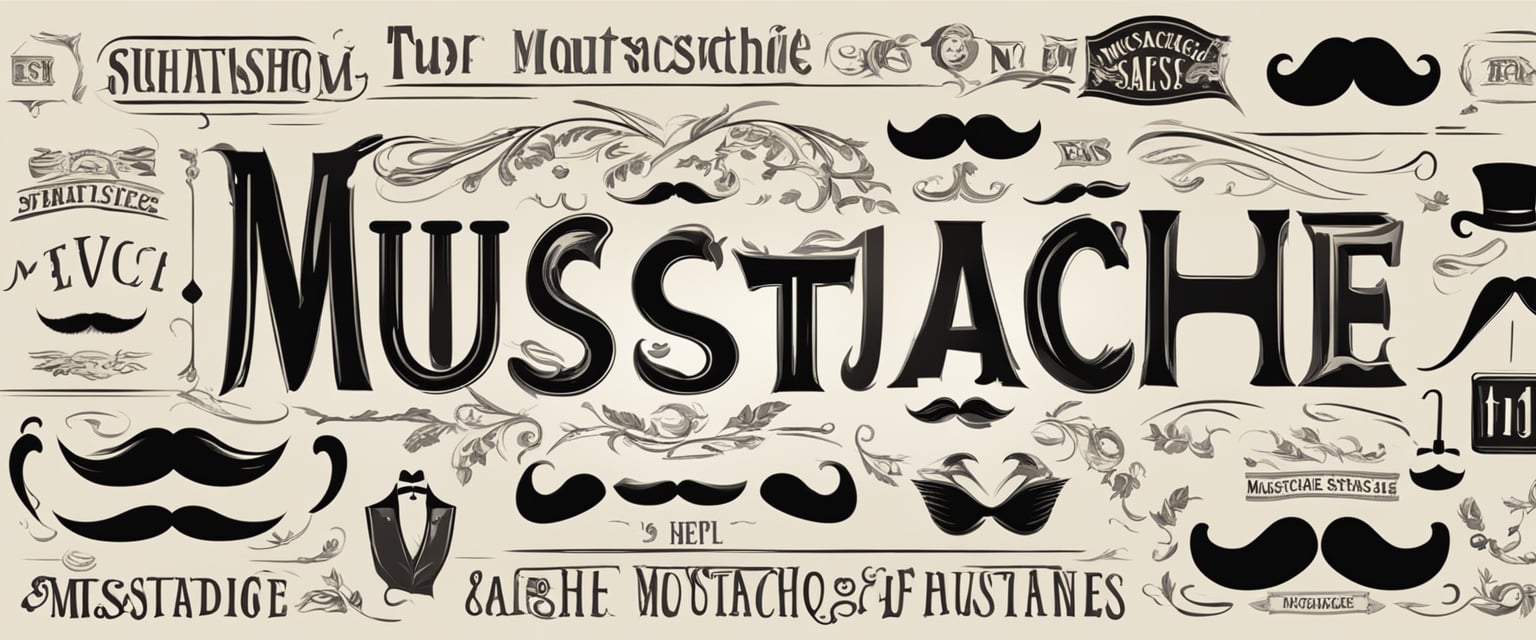
There are several sources that discuss the difference in spelling between "moustache" and "mustache." One source is Merriam-Webster, which explains that "moustache" is the preferred spelling in British English, while "mustache" is more commonly used in American English. The article also notes that the French-derived spelling "mustaches" has competition from the Italian- and Spanish-derived "mustachios."
Another source is Grammarly, which confirms that both "moustache" and "mustache" are correct spellings of the same word. The article explains that "mustache" is the most common spelling in the United States, while "moustache" is used in other English-speaking countries. The article also notes that "mustachio" is usually spelled without an "o" in the first syllable, although in the UK it is commonly written as a plural: "mustachios."
Writing Explained also provides information on the difference between "moustache" and "mustache." The article explains that "moustache" is the accepted variant in British English, while "mustache" is commonly used in American English. The article suggests that if one can't choose between "mustache" or "moustache," remembering that "moustache" and "London" are both spelled with an "o" can be helpful.
Finally, Grammarist provides a comprehensive explanation of the difference between "moustache," "mustache," and "mustachio." The article confirms that "mustache" is the U.S. spelling of the word, while "moustache" is the preferred spelling in all the main varieties of English from outside the U.S. The article also notes that "mustachio," which resembles the Italian word for the facial hair but is spelled differently, was originally a variant of "mustache," but it has long been used to refer to an exaggerated or flamboyant mustache.
Overall, these sources provide a clear and neutral explanation of the difference in spelling between "moustache" and "mustache."
Frequently Asked Questions

What is the origin of the different spellings of 'moustache' and 'mustache'?
The words "moustache" and "mustache" both refer to the facial hair grown above the upper lip. However, the spelling of the word varies depending on the region. The word "moustache" is the British English spelling, while "mustache" is the American English spelling. The word "moustache" is derived from the French word "moustache," which means "upper lip" or "mustache."
What are the common variations of spelling for 'moustache' and 'mustache'?
Apart from the British and American spellings, there are no other common variations of spelling for "moustache" and "mustache." However, some people may misspell the word by adding or omitting letters, such as "moustach" or "mustach."
How do you properly pronounce 'moustache' and 'mustache'?
The pronunciation of "moustache" and "mustache" is the same, regardless of the spelling. The word is pronounced as "muh-stash" or "moo-stash."
What are some popular styles of mustaches?
There are several popular styles of mustaches, including the Handlebar, Chevron, Horseshoe, Pencil, and Walrus. Each style has its unique shape and requires different grooming techniques.
What is the cultural significance of the mustache in different parts of the world?
In some cultures, a mustache is a symbol of masculinity, wisdom, and maturity. In other cultures, it may represent rebellion or nonconformity. For example, in India, a thick mustache is a symbol of power and virility, while in Mexico, a mustache is associated with the country's revolutionary past.
What is the history of the handlebar mustache?
The Handlebar mustache is a style that features long, upwardly curved ends that resemble the handlebars of a bicycle. The style became popular in the late 19th century and was associated with masculinity, sophistication, and elegance. The Handlebar mustache has made a comeback in recent years and is often worn by hipsters and men who want to make a fashion statement.



